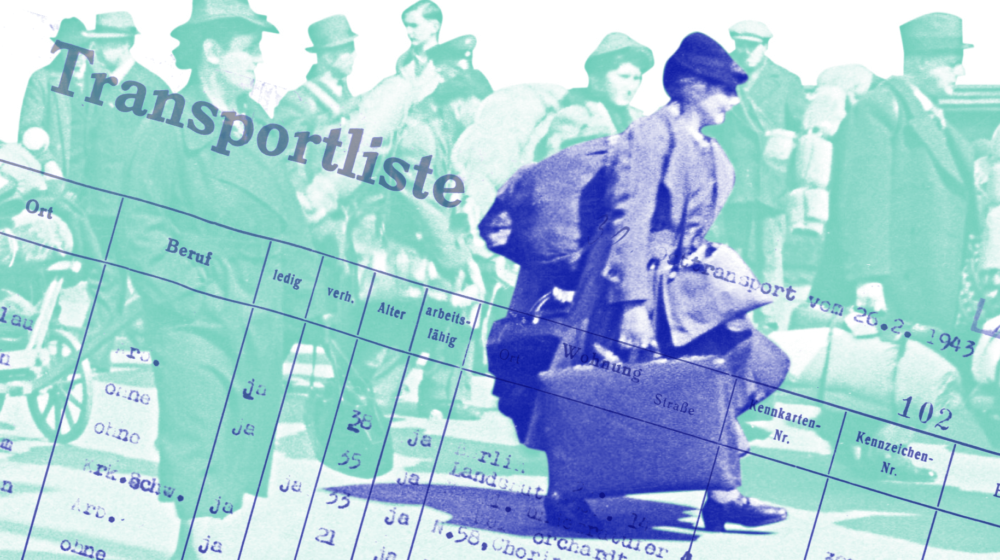New perspectives on sources on deportation in the Nazi era

The Arolsen Archives are organizing a conference on the subject of “Deportations in the Nazi Era – Sources and Research” to be held on November 2–4, 2020. The focus is on new comparative and systematizing approaches, such as those facilitated by the quantitative evaluation of sources, for example. This is the first time that the Arolsen Archives are holding a large, international conference entirely online. Participants can register now!
The central theme of the conference will be sources on deportation in the Nazi era. A deliberate decision has been made to define the topic very broadly: in addition to sources on the deportation of Jews, the conference will also look at sources on the deportation of Sinteze and Sinti and of Romnja and Roma. While these groups have largely been considered in isolation to date, the aim is now to discuss the extent to which the findings from research on one persecuted group might enrich research on the other groups.
Against the backdrop of new research perspectives, the conference also aims to take stock of the body of source material that is available. While comprehensive documentation exists for some transports, time periods, groups of people, and localities, other sources remain largely unexplored.

Some collections have not yet been systematically evaluated because they are kept in archives that are relatively unknown. We are very keen to put the spotlight on the body of source material and to put special emphasis on knowledge potential and on digital indexing and cataloging projects.
Akim Jah, Research Associate in the Research and Education department
Newly scanned documents provide opportunities for new research
The Arolsen Archives are playing an active role in improving the situation with regard to source material. The ongoing process of digitizing documents, indexing and cataloging them, and publishing them in the online archive provides exciting opportunities for new research projects. The newly scanned Berlin transport lists and documents from the Jewish community Leipzig are a case in point.
In the past, data on deportations were usually subjected to a linear evaluation with the aim of tracing specific transport routes or the paths travelled by individual people. However, this approach failed to provide an overview. Digital methods now allow documents to be indexed and cataloged in new ways and make it possible to compare large amounts of data. Sources that were previously thought to contain little in the way of information can now be re-evaluated as a result.
The conference builds on the findings of an earlier conference held by the Vienna Wiesenthal Institute for Holocaust Studies and the Austrian Academy of Sciences in June 2019. Both renowned researchers and young academics will be presenting their projects and research results. This promises a multi-perspective approach, as does the fact that the speakers come from various different places, including Southeast Europe, Israel, and the USA. Twelve panels will provide opportunities for intensive discussions. Simultaneous German/English translation will be available for all events.
The original plan was for the conference, which is sponsored by the Deutsche Bahn, to be held at the Deutsche Bahn’s training academy in the former Kaiserbahnhof railway station in Potsdam. Due to the coronavirus pandemic, the decision has been made to hold the conference as a zoom video conference (https://zoom.us). The log-in data will be made available to registered participants shortly before the conference.

